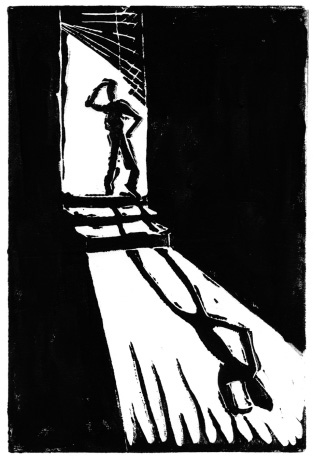
Where is Persia, and why isn’t it called that anymore? What better illustrates the lack of Western understanding of Iran than the fact that few Westerners are familiar with the single most important book in Iranian literature, Shahnameh: The Persian Book of Kings? Why does this book, a massive epic about the pre-Islamic kings of Persia written by the tenth-century poet Abolqasem Ferdowsi that took most of his life to write, start with a question: “What does the Persian poet say about the first man to seek the crown of world sovereignty?”? Does it start with a question because his answer is that there is little known about the first king? What better way to launch a nine-hundred-page epic? Would a statement be able to launch a work of such sweep? What statement would be up to the task? Isn’t a question the only honest way to begin a story that starts in an unknown mythical time? If we are going to admit that we don’t know much about it, wouldn’t it be false to start with a statement?
“Where am I going?”
How many Americans even know where Iran is? Isn’t the often-noted failure of Americans to understand world events because of a poor knowledge of geography, simply a failure to ask the question: “Where?”?
But, on the other hand, don’t people spend too much time asking “where?”? Where was it made? Where were you born? Where is the border to be drawn? Isn’t much of racism and extreme nationalism a result of spending too much time asking “where?”?
Still, isn’t the answer to the question “where?” often an important thing to know? Isn’t it troubling that many of the young people sent to fight distant wars do not know exactly where these countries are? And if a devastating hurricane is about to make landfall, wouldn’t it be a good idea to know where? If we receive a telephone call and don’t know where the person is calling from, isn’t “where?” at least the second question? Don’t we ask “who?” and then “where?”? Who is it? Where are you calling from? Can we fully understand the conversation without first knowing from where the call is coming? Isn’t “where” the context that makes things understandable?
Is it surprising that Thomas Merton, a Trappist monk who studied Asian religion and was a great questioner, would often ask “where?”? Isn’t it natural that a seeker such as Merton would ask this question, as in when he is contemplating the riddle of heaven and earth, which can do everything and yet do nothing?
Where is the man who can attain
To this non doing?
And didn’t Merton have other “where” questions such as “Where is Tao?” and “Where’s your virtue gone?”? If you could answer that question wouldn’t you know a great deal about yourself? But was his ultimate question from his seventy books not a where question at all, but, “Am I a man to imitate?”?